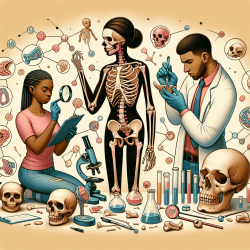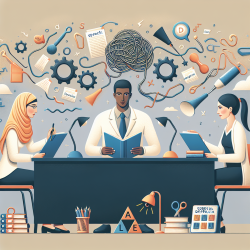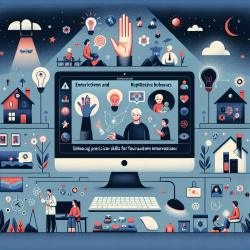Introduction
In the wake of the COVID-19 pandemic, children's routines were disrupted, leading to concerns about their cognitive, social, and emotional health. The study titled "The Effect of an After-School Physical Activity Program on Children’s Cognitive, Social, and Emotional Health during the COVID-19 Pandemic in Nova Scotia" provides valuable insights into how after-school programs can support children's well-being during such challenging times.
Research Insights
The study, conducted in Nova Scotia, Canada, assessed the impact of the Build Our Kids’ Success (BOKS) program on children's health. Parents of children participating in BOKS reported their perceptions of their children's cognitive function, peer and family relationships, life satisfaction, physical activity, sleep, positive affect, and global health. The findings revealed that the BOKS program had a protective effect on children's health behaviors, maintaining them within normal limits despite the pandemic's challenges.
Key Findings
- All NIH PROMIS outcome variables were within normal limits from baseline to follow-up.
- No significant differences in life satisfaction, family relationships, cognitive function, peer relationships, positive affect, global health, physical activity, sleep disturbance, or psychological stress were observed.
- The BOKS program's implementation during the pandemic provided a consistent opportunity for physical activity, which may have contributed to these stable outcomes.
Implications for Practitioners
For practitioners, these findings highlight the importance of incorporating structured physical activity into children's routines, especially during periods of disruption. Here are some actionable steps:
- Encourage schools to integrate after-school programs like BOKS to promote physical activity and social interaction.
- Advocate for the inclusion of physical activity in daily schedules, even during remote learning or restricted periods.
- Support families in finding ways to engage children in physical activities at home or in safe outdoor environments.
Encouraging Further Research
While this study provides valuable insights, further research is needed to explore the long-term impacts of such programs on children's health. Practitioners are encouraged to participate in or initiate studies that delve deeper into the relationship between physical activity and children's cognitive and emotional development.
Conclusion
The BOKS program's success in maintaining children's health during the pandemic underscores the vital role of physical activity in child development. By implementing similar programs, practitioners can help safeguard children's well-being, even in challenging circumstances.
To read the original research paper, please follow this link: The Effect of an After-School Physical Activity Program on Children’s Cognitive, Social, and Emotional Health during the COVID-19 Pandemic in Nova Scotia.










